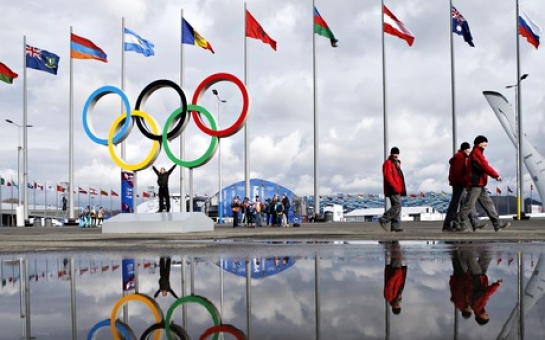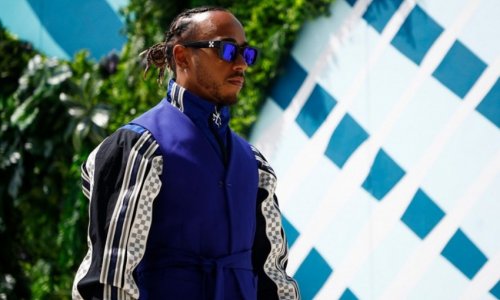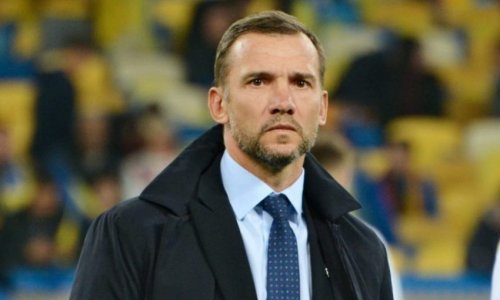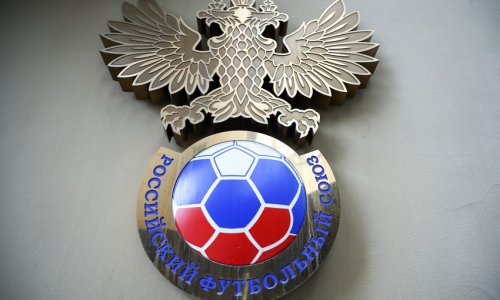Sochi was selected as the host city in July 2007, during the 119th International Olympic Committee Session held in Guatemala City. At that time the games were estimated to cost $12bn; even that dwarfed the bids by South Korea and Austria, yet the cost of these extravagant Games has more than quadrupled.The Sochi Games have five extraordinary features that have made the event highly controversial even before it starts.1. It is being held in a subtropical seaside resortAn Olympic park has been constructed in the Imeretinsky Valley on the coast of the Black Sea, with the Fisht Olympic stadium and the Games' indoor venues located within walking distance. Snow events will be held at Krasnaya Polyana in the Caucasus mountains, and a lavishly appointednew railway has been constructed. Snow has recently fallen in the mountains, so Russia may not have to use the enormous quantity of artificial snow for which provision has been made.2. An exceptional degree of lavish spending, and allegations of croneyism and corruptionIn an article for Bloomberg Businessweek, Joshua Yaffa gives details of 21 contracts handed out to close friends of President Vladimir Putin, the brothers Arkady and Boris Rotenberg, totalling $7bn – 14% of the total expenditure.Yaffa relates that few criminal cases over corruption have been initiated; however, in June 2012 the Investigative Committee of the Russian Federation opened a case against contractors at two venues – the main Fisht Olympic stadium, which will only be used for the opening and closing ceremonies, and the bobsleigh course.The investigators alleged that the contractors inflated costs by submitting false or unjustified project estimates. The alleged losses to the state budget amounted to nearly $170m at the stadium and $75m at the bobsleigh venue. However, in an interview with foreign media on 20 January, Putin denied that there was any evidence of corruption, although he acknowledged there had been attempts to raise prices, as, he said, would happen in any country.3. Sochi is of great significance to the Circassian people, who suffered genocide at the hands of the Russian Empire in 1864The Sochi Games mark the 150th anniversary of the defeat of the Circassians in 1864 at the hands of Tsar Aleksandr II, after they fought for 101 years in the brutal and bloody Russian-Caucasus war. Sochi was the site of the war's last battles, and the port from which most of the Circassians were deported to the Ottoman empire. Krasnaya Polyana itself was the place at which, on 12 May 1864, Russian soldiers paraded to celebrate victory at the end of the war. Indeed, Sochi was the last capital of independent Circassia from 1861 to 1864, and is named after the Circassian ethnic group Shache, who lived there until 1864. It has been argued that as the Sochi Olympics draw closer, there is an information war, the main goal of which is to liquidate all traces of the war and the genocide.4. The issue of militant jihadist movements in the CaucasusThe city of Volgograd, just north of the Caucasus, suffered a suicide bombing last October when a female suicide bomber blew herself up on a city bus, killing six passengers, most of them teenagers. On 29 and 30 December the city suffered two more bombings, first at the city's main train station, and second on a trolleybus, killing another 30 people.The Russian authorities have placed a "ring of steel" around Sochi, but there are growing fears that there could be further attacks close to or in Sochi itself. Andrei Soldatov, the leading Russian expert of the Russian security services, wrote: "It seems the Russian secret services do not understand that maintaining control over everyone and everything (essentially the idea inherited from the Soviet past) and preventing a terrorist attack are far from being the same thing."5. The law against "homosexual information"On 30 June 2013, Putin signed into law new legislation that had been passed by the Russian parliament in a very short space of time. From July, when the law came into force, the "spreading of information directed to the forming in adolescents of non-traditional sexual arrangements" became an offence. This would be punishable fines between 4,000 and 1 million roubles (£18,000). Imprisonment for a term of up to 90 days may also be imposed.This has caused much controversy internationally, with calls for Coca-Cola to withdraw its sponsorship, and a number of world leaders announcing that they will not attend Sochi.On 19 January, in an interview with the BBC's Andrew Marr, Putin insisted that gay people face no discrimination at work or in society in Russia, and the new law did not harm anybody – its aim was purely to protect children. He said: "I myself know some people who are gay. We're on friendly terms. I'm not prejudiced in any way."(theguardian.com)ANN.Az
5 reasons why Sochi's Olympics may be the most controversial Games yet
Sport
12:30 | 03.02.2014

5 reasons why Sochi's Olympics may be the most controversial Games yet
On 7 February, the Sochi Winter Olympics will start. It is estimated that the Games will cost at least $51bn – the most expensive in history. Russia will spend more than the $40bn China spent on the 2008 summer Olympics. The UK spent some $15bn on the summer Olympics in 2012.
Follow us !










